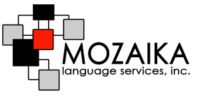| Pages in topic: [1 2] > | Best language to combine with English to have a profitable translation business Thread poster: Inspectress (X)
|
|---|
Inspectress (X)
Ireland
Local time: 17:15
English to Irish
+ ...
Hey folks!
Having searched the forums I'm still at a loss so I hope you don't mind if I put this to you all!
I'd like to take on a new language this year with the view to working in translation down the line and so am hoping to decide on a language I will both love and which will also be in demand for translation into English.
I am strongly considering German as from what I can gauge it is one of the more viable options out there for constant work and if there's a... See more Hey folks!
Having searched the forums I'm still at a loss so I hope you don't mind if I put this to you all!
I'd like to take on a new language this year with the view to working in translation down the line and so am hoping to decide on a language I will both love and which will also be in demand for translation into English.
I am strongly considering German as from what I can gauge it is one of the more viable options out there for constant work and if there's a country I'd live in outside of Ireland it is Switzerland so I have a double motive!
My native language is English and I have a very high standard of Irish (genuinely) but I still wouldn't feel 100% ready to launch myself into this for translation work just yet. Also I'm afraid I wouldn't get constant work with English-Irish and so I don't feel safe with this as my sole language pair.
Would you recommend to go with German or would Russian be better (for example) due to being a BRIC country?
Appreciate any advice or warnings ye may have!! Thanks a mil ▲ Collapse
| | | | Tom in London
United Kingdom
Local time: 17:15
Member (2008)
Italian to English
Inspectress wrote: Hey folks! Having searched the forums I'm still at a loss so I hope you don't mind if I put this to you all! I'd like to take on a new language this year with the view to working in translation down the line and so am hoping to decide on a language I will both love and which will also be in demand for translation into English. I am strongly considering German as from what I can gauge it is one of the more viable options out there for constant work and if there's a country I'd live in outside of Ireland it is Switzerland so I have a double motive! My native language is English and I have a very high standard of Irish (genuinely) but I still wouldn't feel 100% ready to launch myself into this for translation work just yet. Also I'm afraid I wouldn't get constant work with English-Irish and so I don't feel safe with this as my sole language pair. Would you recommend to go with German or would Russian be better (for example) due to being a BRIC country? Appreciate any advice or warnings ye may have!! Thanks a mil 
Mandarin.
| | | | | It has been Japanese | Aug 22, 2010 |
Inspectress wrote:
Having searched the forums I'm still at a loss so I hope you don't mind if I put this to you all!
I'd like to take on a new language this year with the view to working in translation down the line and so am hoping to decide on a language I will both love and which will also be in demand for translation into English.
I am strongly considering German as from what I can gauge it is one of the more viable options out there for constant work and if there's a country I'd live in outside of Ireland it is Switzerland so I have a double motive!
My native language is English and I have a very high standard of Irish (genuinely) but I still wouldn't feel 100% ready to launch myself into this for translation work just yet. Also I'm afraid I wouldn't get constant work with English-Irish and so I don't feel safe with this as my sole language pair.
I understand that translation demand depends on economic activity. Now China-US can be the most active partners but in many previous years, I met with rising demand for En-JP language pair, partly due to the world's 1st and 2nd GDP ranks.
Best regards,
Soonthon Lupkitaro
[Edited at 2010-08-22 10:56 GMT]
| | | | Arianne Farah 
Canada
Local time: 12:15
Member (2008)
English to French
| Agree with Sonthoon | Aug 22, 2010 |
Mandarin-English is one of the least expensive pairs since quality translation is not yet a priority and many translations are done by non-natives for less than pennies on the dollar. You would earn more translating EnglishIrish in a single day than EnglishMandarin in a month. (Obviously there are exceptions - I'm sure there are a few highly qualified translators for Engineering and Research papers in the pair, but for the day to day stuff, the market just isn't mature enough yet).
... See more Mandarin-English is one of the least expensive pairs since quality translation is not yet a priority and many translations are done by non-natives for less than pennies on the dollar. You would earn more translating EnglishIrish in a single day than EnglishMandarin in a month. (Obviously there are exceptions - I'm sure there are a few highly qualified translators for Engineering and Research papers in the pair, but for the day to day stuff, the market just isn't mature enough yet).
In my experience, the two most expensive languages are Japanese and Finnish. So Sonthoon's advice is sound. However, you should know that you'll need anywhere from 3 years to a decade to bring a second language up to the level of a B or C language. In your shoes I would concentrate my efforts on marketing the language pair I already have since the ROI on learning a new language is slim to none in the short to medium-term. ▲ Collapse
| | |
|
|
|
Williamson 
United Kingdom
Local time: 17:15
Flemish to English
+ ...
| Some thoughts | Aug 22, 2010 |
There are already a lot of German>English or English>German translators.
Southern countries pay low rates. Hence a Scandinavian language>English?
Japanese first and Manderin later ? If you can read the kanji's you can understand what a Chinese character means or is it vice-versa.
Later : Particpate in an open competition of the E.U. when they look for translators with Irish (official E.U.-language) in their combination. There won't be too many with strong Irish.
| | | | Peter Linton (X) 
Local time: 17:15
Swedish to English
+ ...
| Two possibly contradictory answers | Aug 22, 2010 |
Answer 1. Which language to adopt?
Easy - a language studied by relatively few English students. Therefore avoid FIGS (French, Italian, German, Spanish) and go either for a Far Eastern language (Japanese, Chinese etc.) or a minor European language in a country that you can afford to visit regularly. I would nominate one of the Scandinavian languages (Danish, Norwegian, Swedish) which are easier to learn and command high rates because so few English people want to study these. And Norway ... See more Answer 1. Which language to adopt?
Easy - a language studied by relatively few English students. Therefore avoid FIGS (French, Italian, German, Spanish) and go either for a Far Eastern language (Japanese, Chinese etc.) or a minor European language in a country that you can afford to visit regularly. I would nominate one of the Scandinavian languages (Danish, Norwegian, Swedish) which are easier to learn and command high rates because so few English people want to study these. And Norway has mountains almost as impressive as those in Switzerland.
Answer 2. Jack of several or master of one language
I agree with Arianne Farah's point that it will take years to acquire enough knowledge of a new language, and that you might be better advised to concentrate on what you know. For example, you might research and build up your own glossary of specialist terms in for example finance, government, civil service, business, law, medicine. ▲ Collapse
| | | | | For the first time ever (?) | Aug 22, 2010 |
Williamson wrote:
There are already a lot of German>English or English>German translators.
Southern countries pay low rates. Hence a Scandinavian language>English?
I agree with Williamson.
The number of native English speakers who have a very, if any, good command of Scandinavian languages is very small. At the same time, all limited companies and public bodies are likely to need/want to have their annual report and other material translated into English.
However, to reach the level of knowledge that you need to command the relatively high rates paid to competent Scandinavian > English translators, you would need to be prepared live in the country you choose for at least 2-3 years in order to immerse yourself in the culture.
The only downside to working from Scandinavian to EN I can think of is how "good" most Scandinavians consider their knowledge of English to be. For example, last week I stayed in a 4* hotel in Stockholm. When booking I found their website pretty professional, but was able to "read the Swedish" on their English pages. Had I not known the hotel well (used to live one block away), I would not have made a booking as I would have assumed their level of service to be similar to their website's presentation.
| | | |
Tom in London wrote:
...
Mandarin.
+100
One more undocumented benefit — knowledge of Mandarin helps to deсipher texts in so-called 'Chinglish'.
[Edited at 2010-08-22 11:47 GMT]
| | |
|
|
|
| Specialize in a field, not a language | Aug 22, 2010 |
Peter Linton wrote:
Answer 2. Jack of several or master of one language
I agree with Arianne Farah's point that it will take years to acquire enough knowledge of a new language, and that you might be better advised to concentrate on what you know. For example, you might research and build up your own glossary of specialist terms in for example finance, government, civil service, business, law, medicine.
Choose any language pair you like and that has visible market demand. Then choose a field of human knowledge that has a need for translation services in this pair, and learn all you can about it.
The best example I can use to illustrate is my own. I have been translating between EN-PT for 37 years. Great with technical stuff, tops with HR and T&D, most of all with any kind of instructional material. However I simply can't translate technical medicine nor finance. Therefore I keep handy the contact details of four specialists in my language pair - two in each area - that I know personally, and whose work I would praise blindfolded. The two medicine specialists are women, while both finance specialists are men; however I don't think this is a significant sample, nor a relevant fact. Any request I get in these areas will be promptly referred to them, and I'll step out of the process.
These four specialized colleagues are usually - if not always - fully loaded with work, and their rates are higher than the market average for our language pair, their clients willingly paying that to have such needs fulfilled with the required quality.
Meanwhile, none of them translates video, and there is a significant demand for highly technical medical video EN-PT(BR) translation for dubbing. Subtitling won't work, as these videos most often show and tell about surgical techniques and equipment. A spectator can't read the subs while carefully watching how it's done. This would be a profitable market niche.
You need to find one such niche for yourself, however be careful not to put all your eggs in one basket (i.e. having one single client).
Now let's compare specialization with the option of learning a new language. I speak Italian, French, and Spanish rather fluently. Absolutely no problem in using them as a tourist, nor in occasional business meetings. However I know that I'd have to study at least 3 more years of Italian, 4 of French, and some 5+ of Spanish to begin translating any of them professionally.
No, I don't have a 'rare' talent for foreign languages other than English. Tried to learn German, couldn't get past Lesson #4. Heard Polish spoken at home every day until I was 25, but can barely understand half of it, even if the message is simple, and my utterances in PL don't take me beyond absolutely basic survival, and unavoidable laughter at how badly I speak it.
So it's your choice, however my humble personal opinion is that there is more in translation from true subject specialization than venturing into a new language.
| | | |
Madeleine MacRae Klintebo wrote: Williamson wrote:
There are already a lot of German>English or English>German translators.
Southern countries pay low rates. Hence a Scandinavian language>English?
I agree with Williamson. The number of native English speakers who have a very, if any, good command of Scandinavian languages is very small. At the same time, all limited companies and public bodies are likely to need/want to have their annual report and other material translated into English. However, to reach the level of knowledge that you need to command the relatively high rates paid to competent Scandinavian > English translators, you would need to be prepared live in the country you choose for at least 2-3 years in order to immerse yourself in the culture. The only downside to working from Scandinavian to EN I can think of is how "good" most Scandinavians consider their knowledge of English to be. For example, last week I stayed in a 4* hotel in Stockholm. When booking I found their website pretty professional, but was able to "read the Swedish" on their English pages. Had I not known the hotel well (used to live one block away), I would not have made a booking as I would have assumed their level of service to be similar to their website's presentation.
Most of the biggest Scandinavian companies write their own literature directly in English these days...
| | | | Audra deFalco (X)
United States
Local time: 12:15
Italian to English
+ ...
For what it's worth, I would go with Japanese.
Not only is it beautiful, you'd get to visit Japan and be a part of an amazing culture. And not to mention the multitude of movies, shows, books etc. you could read in Japanese which are quite interesting. And the food!
In fact, I'm learning Japanese myself
| | | | | That's where marketing skills come in handy | Aug 22, 2010 |
Giovanni Guarnieri MITI, MIL wrote: Madeleine MacRae Klintebo wrote:
The only downside to working from Scandinavian to EN I can think of is how "good" most Scandinavians consider their knowledge of English to be. For example, last week I stayed in a 4* hotel in Stockholm. When booking I found their website pretty professional, but was able to "read the Swedish" on their English pages. Had I not known the hotel well (used to live one block away), I would not have made a booking as I would have assumed their level of service to be similar to their website's presentation.
Most of the biggest Scandinavian companies write their own literature directly in English these days...
And potentially loose business as in my example above about a 4* hotel.
| | |
|
|
|
| Agree with José | Aug 22, 2010 |
It's not useful to simply say that there are many German>English translators out there. There is quite a bit of work in the financial field in German, so that would be a good specialization and well-paid - if that's your cup of tea. Think about what you'll be translating in addition to just the language.
| | | | Inspectress (X)
Ireland
Local time: 17:15
English to Irish
+ ...
TOPIC STARTER | still torn.. | Aug 22, 2010 |
Thanks so much to everyone for your advice. Have been considering everything that has been said here as I really want to make the most informed decision I can.
Regards Japanese and Mandarin, I just don't have the will to learn these languages unfortunately. I can't explain why but I'm definitely not drawn to them so I'd never have the motivation required to learn them.
Definitely would be interested in Swedish or Norwegian as suggested! Have just been listening to them ... See more Thanks so much to everyone for your advice. Have been considering everything that has been said here as I really want to make the most informed decision I can.
Regards Japanese and Mandarin, I just don't have the will to learn these languages unfortunately. I can't explain why but I'm definitely not drawn to them so I'd never have the motivation required to learn them.
Definitely would be interested in Swedish or Norwegian as suggested! Have just been listening to them both and they're obviously very similar but I think going on Swedish being more widely spoken I'd be happier doing that rather than Norwegian. I know that Norwegian would be more niche again than Swedish so it's hard to know! Which would ye advise?
I'm definitely taking your advice on sticking with Irish and developing my vocabulary in a specialist field. More and more people are taking the accreditation exam here now and I expect it will be even more competitive to get jobs in English-Irish with every coming year, so if it takes me 1-2 more years to reach the level I know is 100% good enough, I'd be worried I'd still be left without work! But I am going to continue with it and do my best with it, I just ideally would like a second language pair where I can make use of my native English as the target language.
My specialisation subject will in fact be finance so I'm glad to know there are opportunities in the German-English realm here.
So..... right now I'm trying to decide between German, Swedish or Norwegian (with finance as my main specialization)
Which one is wisest do ye think?
[Edited at 2010-08-22 15:56 GMT] ▲ Collapse
| | | | Peter Linton (X) 
Local time: 17:15
Swedish to English
+ ...
Inspectress wrote:
Definitely would be interested in Swedish or Norwegian as suggested! Which would ye advise?
I'm biased (my mother was Swedish). Norway has two versions of its language, which complicates matters, and in many ways Norwegian is a Swedish dialect rather than a separate language (and saying that will get me into trouble). There is plenty of financial work in both, because many companies have to publish their Annual Reports in English.
It is true that many documents in Sweden are written in English by Swedes. The trouble is, too many Swedes think they can English wery vell -- and it shows (as Madeleine points out). So there is work in editing such texts, because we English speak English very well.
So..... right now I'm trying to decide between German, Swedish or Norwegian (with finance as my main specialization). Which one is wisest do ye think?
I suppose the logic of what I am saying points to Swedish, with Norwegian added at a later stage. Rates are higher than in German. On the other hand, there is tonnes of work from German, and there is safety in numbers.
I would suggest spending some time listening to these languages and choosing one on what may seem at first a trivial basis – the one that you like the sound of. But that is quite important in the long run.
| | | | | Pages in topic: [1 2] > | To report site rules violations or get help, contact a site moderator: You can also contact site staff by submitting a support request » Best language to combine with English to have a profitable translation business | CafeTran Espresso | You've never met a CAT tool this clever!
Translate faster & easier, using a sophisticated CAT tool built by a translator / developer.
Accept jobs from clients who use Trados, MemoQ, Wordfast & major CAT tools.
Download and start using CafeTran Espresso -- for free
Buy now! » |
| | Trados Studio 2022 Freelance | The leading translation software used by over 270,000 translators.
Designed with your feedback in mind, Trados Studio 2022 delivers an unrivalled, powerful desktop
and cloud solution, empowering you to work in the most efficient and cost-effective way.
More info » |
|
| | | | X Sign in to your ProZ.com account... | | | | | |













